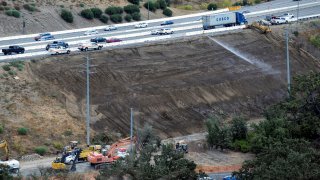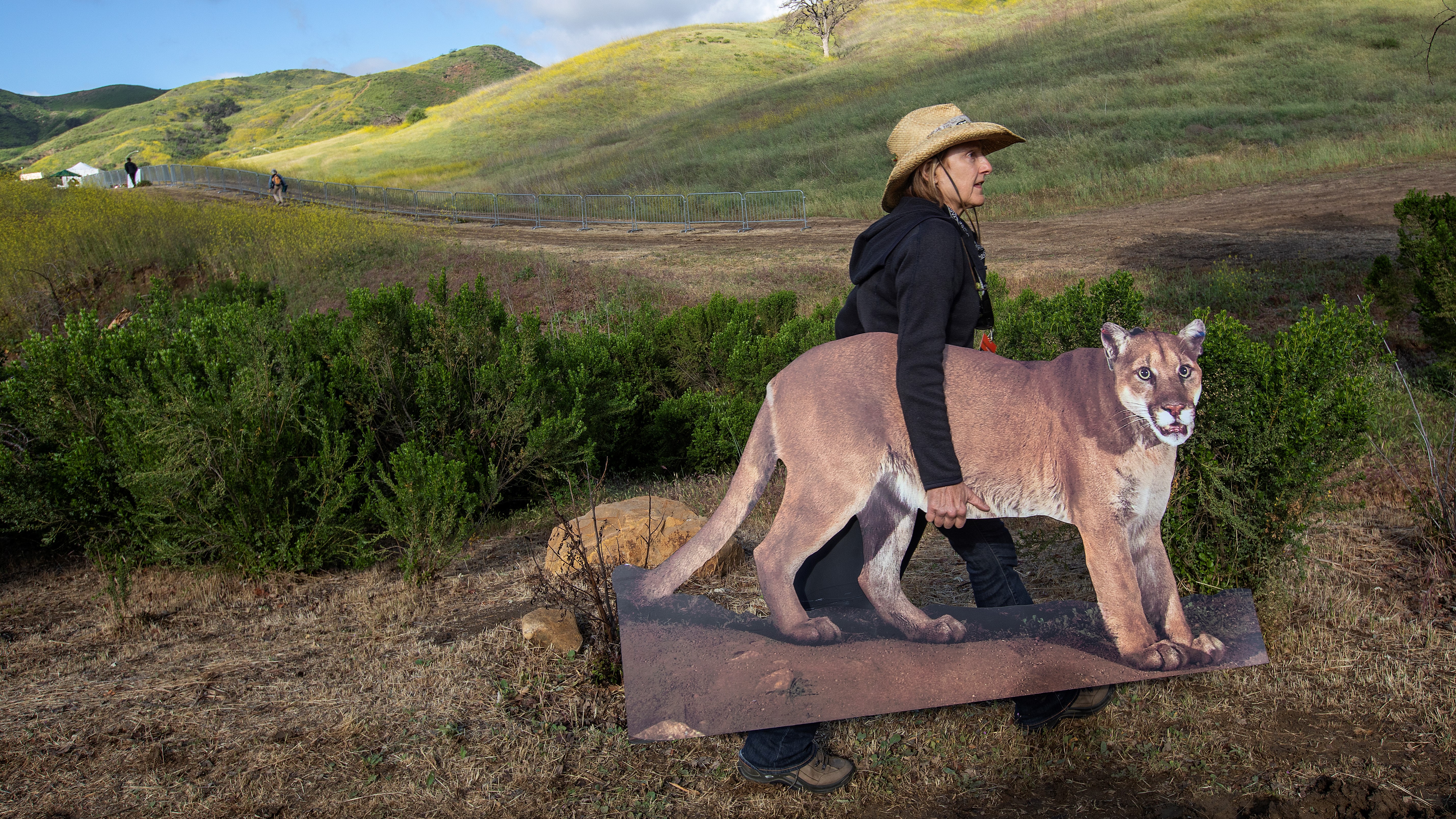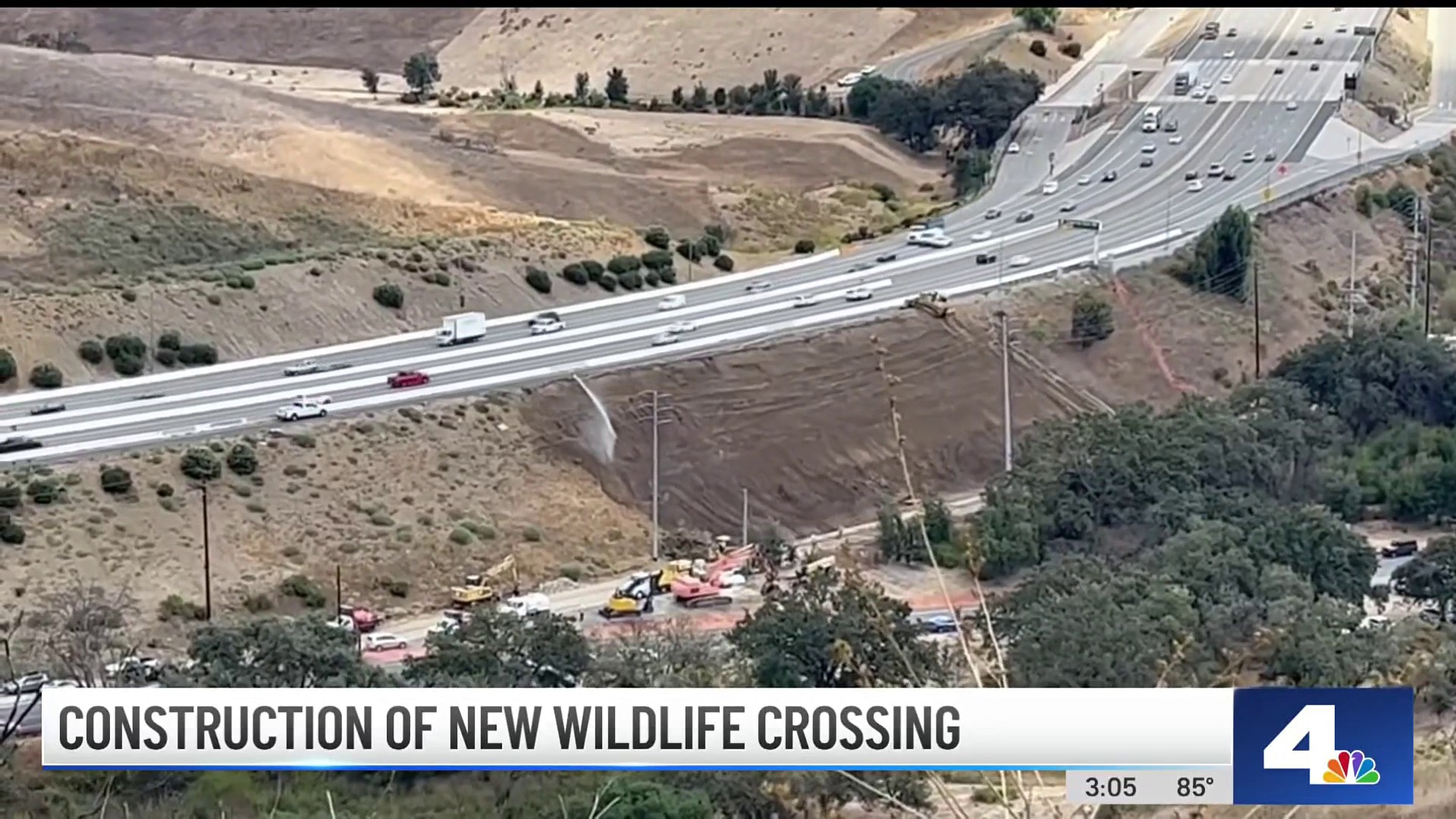
Lanes and ramps will be closed weeknights on the 101 Freeway northwest of Los Angeles due to construction of a wildlife bridge billed as the largest of its kind in the country.
The closures in the Agoura Hills area near Liberty Canyon Road will be at night, Monday through Friday, beginning Oct 3. Crews will be working in the median area of the freeway, requiring lane and ramp closures.
Ramp closures also are possible from 9 a.m. to 3 p.m. weekdays.
Get Southern California news, weather forecasts and entertainment stories to your inbox. Sign up for NBC LA newsletters.
Here's what to know about the night-time lane and ramp closures.
- The southbound 101 Freeway Liberty Canyon Road exit ramp and northbound 101 Freeway Liberty Canyon Road entrance ramp will close after 7 p.m. Detours will be posted. Ramps are scheduled to reopen by 6 a.m. each day.
- One northbound 101 Freeway lane will close at 7 p.m. One southbound 101 Freeway lane will close at 8 p.m. Two freeway lanes in either direction will close after 10 p.m.
- All freeway lanes are scheduled to reopen daily by 5 a.m.
- No full freeway closures are planned.
Drivers can expect intermittent closures on the southbound 101 Freeway Liberty Canyon Road exit ramp and the northbound 101 Freeway Liberty Canyon Road entrance ramp between 9 a.m. and 3 p.m., Mondays through Fridays.
The crossing will built in two stages, starting with the vegetated bridge over the freeway that blends in with the habitat on both sides. That stage is expected to wrap up in the fall of 2024.
Stage 2 consists of a tunnel/bridge over Agoura Road and another over the service road Vendell Place.
What is the Wallis Annenberg Wildlife Crossing?
The Wallis Annenberg Wildlife Crossing project began on Earth Day, April 22, with a ceremonial groundbreaking setting it on a path for completion in 2025.
The greenspace bridge will provide more room to roam for mountain lions and other animals hemmed in by urban sprawl. Big cats, coyotes, deer, lizards, snakes and other creatures will have a safe route to open space in the Santa Monica Mountains and better access to food and potential mates.
It is estimated that the mountain lion population in the Santa Monica Mountains could become extinct within 50 years without an influx of genetic diversity. The lions are largely isolated due to freeways that act as barriers to movement across the region.
Conservationists hope the $85 million crossing will alleviate the problem.



